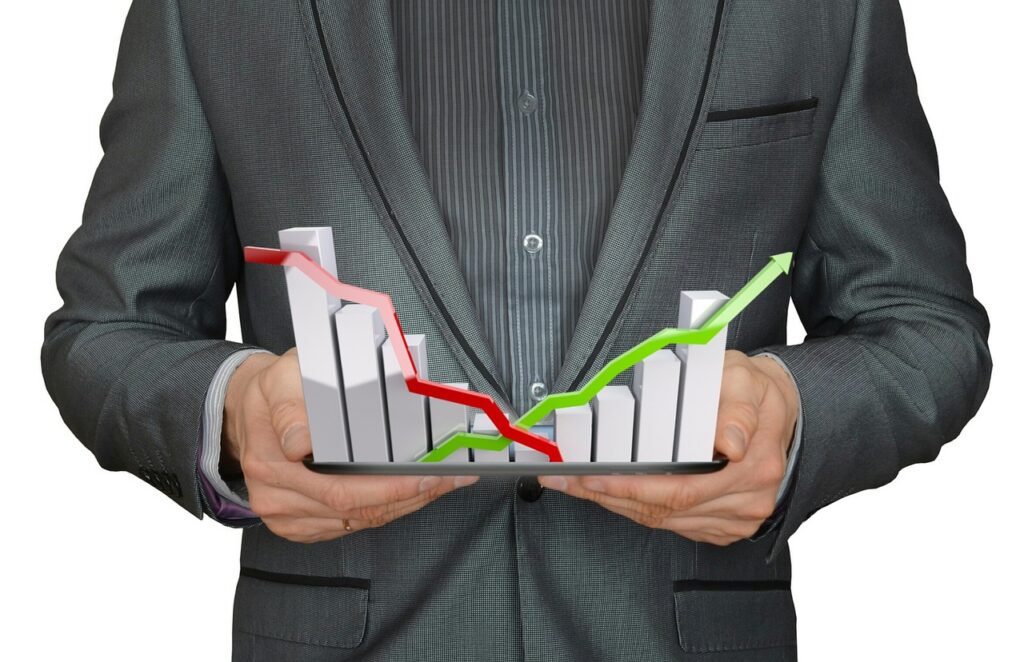How The Economy Changed In The Past 20 Years
Over the past 20 years, the economy has been affected by things such as advancing technology, changing workforce demographics, and global tragedies and disruptions like 9/11 and Covid-19.
This article is more than 2 years old

Over the past 20 years, the global economy has undergone consequential changes, driven by a range of factors such as government policies, technological advancements, global events, globalization, and demographic shifts. From the 2008 financial crisis to the recent COVID-19 pandemic, these events have had a profound impact on the economy and the way we live our lives.
Policies of the Government
The 2008 financial crisis was one of the most significant economic events of the past two decades, according to an article by John Rothans published in US Money Reserve. Rothans observes that the crisis had a lasting impact on the economy and how individuals and businesses approach investing. As a response to the crisis, the Federal Reserve reduced interest rates and purchased assets. Additionally, tax policies aimed at addressing income disparity were enacted, such as the Tax Cuts and Jobs Act of 2017, which raised after-tax income for all income groups, but particularly for high-income earners. Financial regulations were also put in place through the Dodd-Frank Wall Street Reform and Consumer Protection Act of 2010.
Technological Advancements
Technology has advanced significantly in the previous 20 years, thanks to the emergence of the internet, social media, and online shopping. As Rothans contends, “the internet has fundamentally changed the way we do business, communicate, and access information.” The rise of e-commerce and other online platforms has disrupted traditional industries and created new opportunities for entrepreneurs and investors.
Global Events and Disruptions
The long-term economic impacts of 9/11 on the US economy were complex and far-reaching, according to a report by the Council on Foreign Relations. The attacks caused substantial disruptions to the transportation and tourism industries in the immediate aftermath, and the ensuing war on terror resulted in a massive rise in military spending. These causes all contributed to an increase in the US budget deficit and the national debt.
The 2020 COVID-19 outbreak shook, and continues to shake, today’s economy. As Rothans observes, “the pandemic has had a profound impact on the global economy, causing widespread job losses, business closures, and disruptions to supply chains and consumer behavior.” The pandemic has also accelerated trends such as remote work and e-commerce, which were already underway but have been rapidly adopted in response to the crisis.
Globalization
Throughout the last two decades, globalization has been a key driver of economic transformation. According to the World Bank, global trade has grown at a 3.5 percent annual rate since 1990. This has resulted in greater foreign investment and outsourcing, affecting wages and income inequality. According to an Economic Policy Institute analysis, globalization cut the income of the average American worker without a college degree by 5.5 percent between 1993 and 2013.
Changes in Demographics
Over the last two decades, demographic shifts have also had an impact on the economy. The aging population has raised the demand for social security and healthcare, while changing family arrangements have had an impact on labor force participation. According to Pew Research, the Millennial generation is now the largest generation in the U.S. labor force, surpassing Generation X. In 2018, 57 million Millennials (born between 1981 and 1996) were employed or seeking employment. That was more than the 53 million Generation Xers (born between 1965 and 1980) and considerably more than the 38 million Baby Boomers (born 1946 to 1964).




![[Photos] Noah's Ark Remains Might Finally Have Been Found](https://www.tellmebest.com/wp-content/uploads/2021/07/cropped-tell-me-best-fav-s.png)